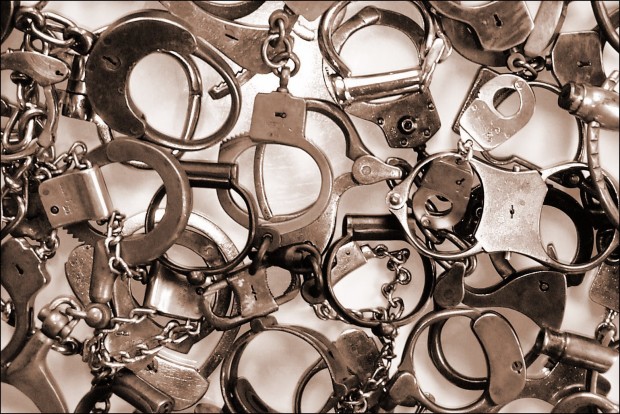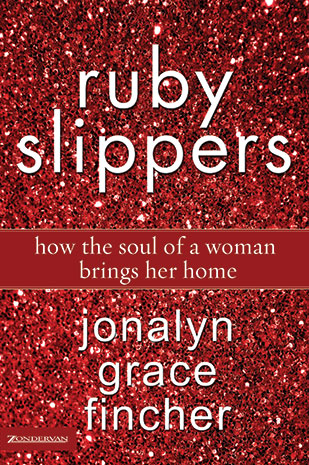I’ve listened with inner surprise as friends explained their preferences in bed.
You really do that? I want to say. We all have the capacity to surprise each other with what we do in private.
I’m not a sex therapist. I’m not a counselor.
But, as a philosopher I have some ideas. And with a bit of trepidation, I’m going to share them on the question on BDSM.

Photo credit: http://www.handcuffs.org/
BDSM is an acronym for bondage and discipline (BD), sadism and masochism (SM).The goal of BDSM relationships is to take on complementary but unequal roles (role-play like master/slave, pirate/captive, Nazi/Jew) in order to create a dominant/submissive situation. Men and women who practice BDSM often get kicks from pain and humiliation (both receiving and inflicting).
I had to rely on wikipedia for that. I have no experience with BDSM. And I realize reading E.L. James’ Fifty Shades of Gray makes me no expert.
I’ve already weighed in on the novel, for this post I want to zero in on the whips and punishment question.
Issue #1 – Masking Knowledge
Role-playing, as Phyllis from The Office says (yes, I’m quoting a fictional character for this one), can be “really fun.” We all have good, silly, and ultimately hot, God-given fantasies we ought to explore a bit more (in the playfulness and fun of our marriage). We also have fantasies that require corseting a person into a role that doesn’t fit them.
Which to choose?
Dominants (Dom) and Submissives (Sub) know all about role-playing. Their relationship depends on tipping the power ratio within love-making. As a believer in the essential equality of men and women I want to ask: How does playing at subjugation rather than equality in bed affect life beyond the bedroom?
In the recent bestseller, Fifty Shades of Gray, Ana doesn’t want to become a Sub because it means giving up her freedom to touch Christian when she wants, to sleep with him each night, to know him beyond his role as a Dom.
I think Ana’s reticence is spot-on.
 Love-making, intimacy, fantasies are for the ultimate end of knowledge.
Love-making, intimacy, fantasies are for the ultimate end of knowledge.
Role-playing comes at a pretty high cost. If a husband always wants to play pirate to his wife’s captive role, the wife only learns one slice of who he is in love-making. She doesn’t get to see him vulnerable.
Finally, a wife or husband may assume a role that might actually clash with who they are. I remember a story of a young woman who decided to play a genie during her honeymoon. Her husband was both baffled and seriously entertained. I don’t mean sexually. He was doubled over laughing because the costume masked who she was and replaced her with a laughable charade.
Role-play requires a suspension of knowledge about the other person. Masks… doesn’t that belong more in the espionage and superhero realm than in love-making?
Problem #2 – Re-enacting Punishment
In one of the sadder moments in Don Draper’s life (AMC’s drama Mad Men) he invites a prostitute to his home. As she begins her work, he demands she slap him across the face.

Don Draper
“Again,” he yells.
She backhands him again. Slap, slap, slap.
Draper looks relieved.
Does he thinks he deserves it? Followers of Mad Men know Draper’s self-loathing goes back decades. Don Draper isn’t even his real name.
BDSM bothers me because it offers a sexually arousing practice that re-enacts punishment. Hugo Schwyzer explains that BDSM offers some abused people “recovery through ritualized acts of domination and submission.” (which is also Christian’s explanation of his past initiation into BDSM in Fifty Shades). To read more about BDSM as recovery (viewer discretion advised) see Not Your Usual BDSM and Abuse Story.
I do not believe some people (the ones that get knocked around more often than not) are hard-wired as Submissives. Nor do I think a Dom’s commands to stop drinking or get a job is the best way to develop a sense of identity. The Sub is still playing a role.
Further, I believe arousal at someone else’s pain indicates something about pain in that person’s life. If Sue gets turned on by hurting her friends, even if her friends want to be hurt, we call this a problem. Even if it’s between two consenting adults.
If Sue gets turned on by hurting her husband, even if he wants it, we can also call this a problem. Even if it’s between consenting adults.
As someone who has experienced people in authority taking liberties over me that I did not grant, the power of BDSM to both unleash and arouse feels (in my untried and unprofessional opinion) like dousing fire with kerosene and then claiming control over the flames. As I’ve written previously (Sex, Food and Fifty Shades of Gray) just because something makes you feel powerful or turned on does not mean it is a power for good in your life.
Using pain, even willing pain (the BDSM code of ethics SCC—I know, more acronyms—means Safe, Sane and Consensual), to recover from worse memories says more about how bad life used to be. It doesn’t give BDSM a ringing endorsement.
Problem #3 – #FirstWorldProblem
BDSM often entails elaborate costumes, equipment and preparation. Like the twitter trend #FirstWorldProblem (e.g. Freaking out because you lost your Ray-bans) BDSM seems to be a first world problem.
When you’re working to keep your children fed and away from prostitution in order to feed your family, BDSM appears as a final ditch aphrodisiac for bored, but wealthy married couples. For some non-BDSM ideas of re-igniting your sex life please see my post Sex, Food and Fifty Shades of Gray.
I Can Imagine
Perhaps there are wives and husbands who can make love untinged by any sexual or emotional abuse, couples who role-play fantasies of authenticity. Perhaps they walk BDSM’s razor edge between pleasure and pain to successfully arouse each other without re-enacting or committing abuse.
I can imagine it, but I have yet to meet them.









Recent Comments